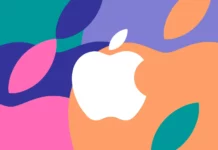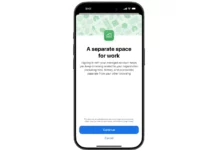Over the years, Microsoft has used various tricks to convince people to continue using Bing and Microsoft Edge on Windows by default, including modifying Chrome download sites and using malware-like pop-ups. Now Opera has grown tired of what it calls Microsoft’s “manipulative design tactics” and today filed a competition complaint in Brazil, alleging that Microsoft is using anti-competitive practices to persuade people to use Edge.
“At every step of the way, Microsoft is hampering the competition of Windows browsers,” said Aaron McParlan, general counsel at Opera. “First, browsers like Opera are deprived of important pre-installation features. And then Microsoft prevents users from downloading and using alternative browsers.”
Opera’s complaint alleges that Microsoft ignores a user’s choice of default browser in a variety of ways, from opening PDFs or links in Outlook and Teams to opening links through Windows features such as search or widgets. Opera also notes that Microsoft uses “intrusive banners and notifications that dissuade users from downloading alternative browsers at the very moment they search for these browsers in Edge.”
Opera filed its complaint in Brazil, as it is one of the company’s main markets. “Opera is already a great success in Brazil: it is the third most popular browser in Brazil and has millions of loyal users who actively choose it despite Microsoft’s tactics,” McParlan said. “The complaint, which addresses Microsoft’s practices around the world, provides an opportunity for Brazil to take the lead on this international issue.”
If Opera’s complaint is successful, it wants Microsoft to provide remedies such as allowing PC manufacturers to preload alternative browsers by default, stopping blocking users from downloading other browsers, and ending “dark schemes that push users to use Edge.” Opera also found that Microsoft requires OEMs to “ship S-mode devices as a condition for receiving discounts on Windows licenses,” another practice it wants to see outlawed.
Although the complaint will be reviewed by the Brazilian antitrust authority, it is part of Opera’s broader efforts to fight Microsoft’s Edge practices around the world. Last year, Opera unsuccessfully appealed the EU’s decision not to designate Microsoft Edge as a “gatekeeper” under the rules of the Digital Markets Act (DMA). Microsoft avoided this designation, but it still had to make changes to Windows in EU markets in response to the DMA. These changes led the company to stop listening to Windows users about Edge.
“We believe that Microsoft’s behavior, including the changes it has announced in Europe, is insufficient to achieve effective compliance with the DMA,” McParlan said. “In this context, and as part of its global efforts to ensure free and effective consumer choice, Opera has challenged in the EU courts the European Commission’s decision not to designate Edge as a gatekeeper service under the DMA.”
In the past, Microsoft has not only used Windows to convince people to switch to Edge, but also created a fake Google interface to try to convince Bing users that they were using Google earlier this year. The search results looked very similar to Google, with its own search bar, a Google Doodle-like image, and small text below the search bar, just like in Google search. Microsoft quickly shut down access to its fake Google interface as soon as people started to notice.
Opera also has a history of complaining about Microsoft’s browser behavior on Windows. It initially filed an antitrust complaint with the EU in 2007, which eventually led to the creation of a browser selection screen that allows Windows users to choose one of the 12 most popular browsers instead of defaulting to Internet Explorer. Microsoft was forced to keep the browser selection screen in Windows for five years, but in 2013 was fined $730 million for not including it in Windows 7 Service Pack 1.









